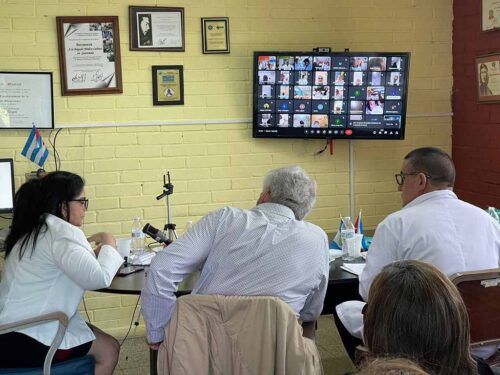A total of 40 projects from 2021 and 2022, were presented at the 19th edition of the BMC National Scientific Conference on Saturday in a virtual format that allowed collaborators in their departments to communicate with three tribunals created by the General coordination. The research projects dealt about three large fields, the Maternal and Child Program, chronic non-communicable diseases and free issues, where the Operation Miracle Program and its free cataract surgeries had a significant space, with great impact on this Central American country.
According to Guatemalan expert Jaime Anselmo Hernandez, coordinator of the Cooperation with Cuba for the healthcare system, events like this allow us to measure the value of the mission of Cuban doctors, mainly in the transformation of primary care indicators.
“I feel honored to have you with us, you make an enormous effort, great family sacrifices, you face adverse situations on a daily basis and you are at the foot of the canyon,” Hernandez said in his speech to the doctors, whom he thanked for their work under conditions adverse.
Invited to the sessions, the Cuban-Guatemalan Doctor Miguel Garces, a pathologist by profession, also considered fundamental the contribution of the research works presented for the Ministry of Public Health and Social Assistance (Mspas).
Guatemala lacks the capacity to carry out an analysis by municipality and diseases and you have done it. There are 103 municipalities and it is of tremendous value for the Mspas to know what is happening in the communities where you live and work, he assured.
Garces proposed to systematize and organize all this two-year information for delivery to health authorities in order to fine-tune care strategies in rural areas, where inequity and poverty are big.
jg/jha/mmc










